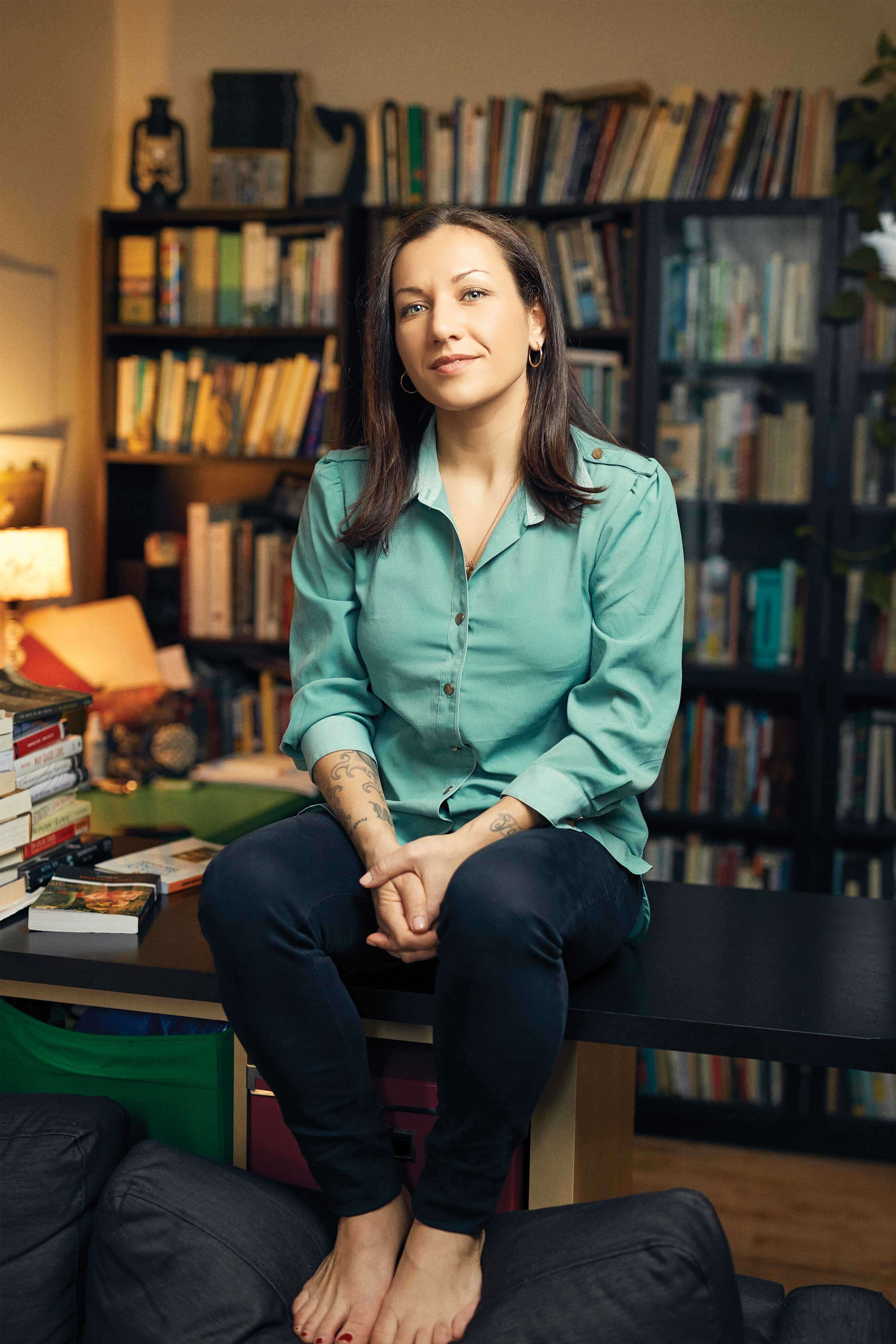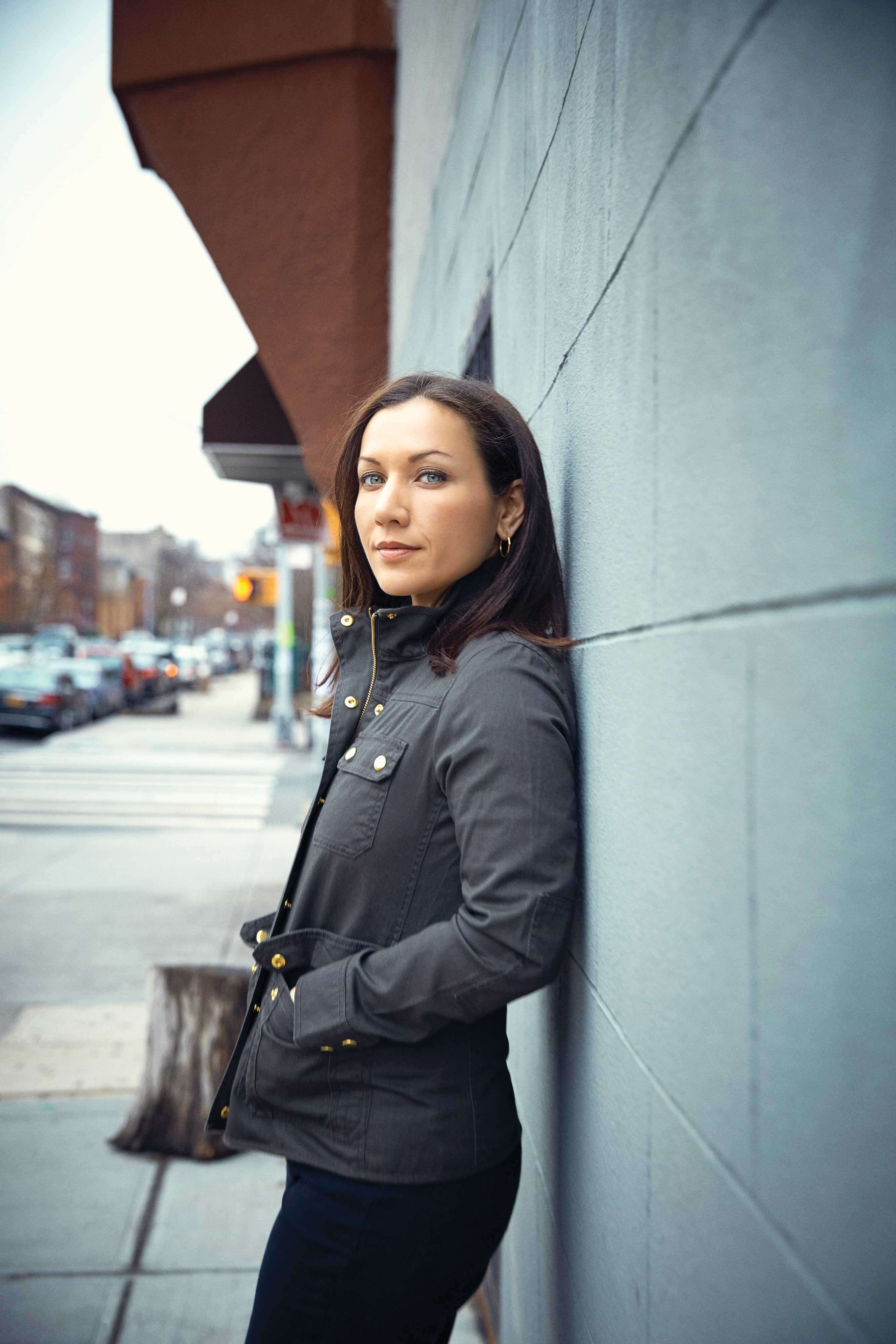
Memory, Language, and Lost History
An interview with Melissa Febos.
Melissa Febos’ writing perfectly captures the web of connections that can empower us, haunt us, or leave us emotionally exhausted. In her critically acclaimed memoir Whip Smart, she chronicled her experiences working as a dominatrix during a self-destructive period of her life, documenting a rarely-glimpsed subculture of New York. In her new essay collection Abandon Me, she delves more fully into human complexities, juxtaposing scenes from throughout her life while examining depression, addiction, relationships, and the bonds of family. Here, too, she ventures into complex territory, dealing with her connection to both her biological father and the man who raised her, referred to in the book as “the Captain.”
In Abandon Me, you tell of writing poetry as a child and starting school knowing you wanted to be a writer. Was there one moment you knew that definitively?
I was a crazy reader as a kid… an obsessive, fiendish junkie for books… By the time I was 10, I was already telling people I was a writer. A few years after that, I added college professor. I used to make my little brother play “school” all the time and give him homework. Clearly, I had the hubris early on. Those were really the only occupations I ever considered, because I was so sure I wanted to build my life around this.
As much as I was a social, verbal, interactive young person, I was also very private and prone to fantasy. I would play weird imaginary games where I would go into the woods and pretend I had just fallen from another planet and wander around alone pretending I was discovering Earth and making up stories and little plays. The experience of building a world was always something I did privately, so it makes sense that translated most directly into writing.
How did you go from writing fantasy to such candid nonfiction?
I went to college thinking I would be a poet. Then about halfway through… I switched to fiction and basically never went back. All my fiction was very heavily based on autobiographical material, but it never occurred to me to write nonfiction… In graduate school, I took a nonfiction survey class where we wrote an op-ed and did a book review and then a memoir. When I wrote that memoir it just poured out of me with an urgency that I had never experienced writing fiction. Fiction was always somewhat painstaking for me, and slow. The nonfiction wanted me to write it. When you open the door to a story that desperately wants to be told, that’s your best story, it doesn’t just go away. It kept knocking and eventually I said, “Okay, this is what I’m doing,” and I never went back.
You’re drawn to the sounds of words. Does that go back to your time writing poetry?
I’ve always been in love with the sound of words. Something that I write about in “Call My Name” is how I used to repeat words to myself as a kid and pull the sounds apart… I think my attraction to language and words is very rhythmic and musically based. And I do think the things I most loved about writing poetry I’ve taken with me to prose.
 Abandon Me grew out of a very different project that would have incorporated King Philip’s War. How did you get from that theoretical book to this one?
Abandon Me grew out of a very different project that would have incorporated King Philip’s War. How did you get from that theoretical book to this one?
Shortly after I finished [Whip Smart], I wanted to write a historical novel about the Wampanoag Tribe, from which I descend. I ordered all these books and made all these notes. Then I had a discouraging conversation with my agent at the time that led me to abandon the idea completely. I don’t think that was entirely a result of being discouraged by external forces. I also wasn’t yet clear on why or what I wanted to write about it.
That was the beginning of my consciousness of my own curiosity about where I come from and what that part of my identity meant to me, because I’d never interrogated it in any way. At that time, it felt safer to approach it from the outside. Instead, I went and wrote a different novel and then essays, and the subject resurfaced in a very different way.
There’s a passage in Abandon Me where you’re talking with the Captain about his reaction to Whip Smart and how your own take on memory has evolved in the time since then…
I think this process that happened very organically and subterraneously for me—of having an impulse and starting to write about something—it feels like a hustle or a trick that I play on myself that I keep falling for over and over again where I say, “Oh, I’m going to write an essay about my name.” And by the time I get to the end of it I say, “Oh! This is about the legacy of historical trauma in my relationship with my father—surprise!”
The writing process becomes a way that I can detach from myself and enter my writer persona and figure out the narrative of my own mysteries and questions and trauma and transformations, and at the end of it I’ve done the process but I didn’t have to do it in therapy or with another person. Then I can show it to other people and be honest about it.
An interesting byproduct of this process is that I also subject other people to it, because they are necessarily implicated in those stories. Particularly with this book, which is so much about my family. In the same way that writing forces a conversation with myself about my own experience, it also has forced conversations with my family that we might have avoided otherwise.
Why did you dedicate the book to the Captain?
At its most basic level, I think [Abandon Me is] a book about love and about what it means to be cared for and how that forms you. In writing it, I arrived at a new depth of gratitude for how lucky I was to have him for a father, and a new depth of gratitude for how hard and successfully both of my parents loved us and tried to correct the missteps of their own parents. I called him the Captain because he’s a captain, but [also] because I was writing about two fathers in the book, and I had to differentiate between them. The dedication was…a gesture to make clear that he’s my father—in the truest sense of the word.
Does writing so candidly about your life affect how you interact with students?
My teaching and my writing are separate things in many ways… The way that I teach is very much about the process of craft. It is about translating experience into art, but I don’t speak to my students’ experience, I speak to their process of creating art.
As a rule I don’t talk about my experience in the classroom; I’m very clear about that if it ever comes up. I have had many cute moments with students coming to my office with my book after the semester is over and confessing their experience of it, and that’s fine. I prefer it that way. The personal nature of my work can be distracting. But I have a lot to say about craft and that’s the ground on which I meet my students.
Are there things you’re hoping to do with your next project that you weren’t able to with Abandon Me?
I like to read very broadly, and I do a lot of research and not a lot of it makes it explicitly into my work. In Abandon Me, it made it into the work more than anything I’ve ever written. There are a lot of threads of philosophy and psychology and history and spiritual writings. That felt so good, to integrate all of my research interests, and I definitely see myself moving even more in that direction. I’m in the “earlyish” stages of writing another essay collection and I think that there will be a much bigger research element. I think I’ll be in conversation with the external world a lot more than I have. I think it’s a good time to do that.